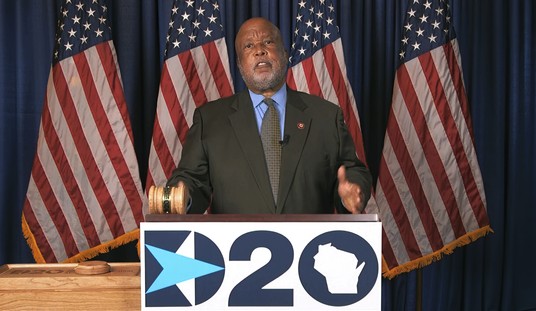I’m opposed to tax increases. Tax hikes drain money away from competitive, job-creating sectors and more often than not siphon money into self-perpetuating, job-destroying bureaucracies. Temporarily or permanently, extensions of tax reduction programs are good for America and good for our economy.
Sen. Jim DeMint understands this. Or at least, he did.
As a member of the U.S. House, Representative Jim DeMint voted for the Jobs and Growth Tax Relief Reconciliation Act of 2003 — the (temporary) Bush tax cuts. Prior to the vote, DeMint wrote in the March 30, 2003 edition of the Spartanburg Hearld-Journal to speak out in favor of the bill as a legitimate form of stimulus, and central to any recovery. “Unfortunately,” DeMint wrote,
…some in the Senate are determined to kill or weaken president Bush’s economic package, which is designed to boost economic recovery, create jobs and promote investment by individuals and businesses. Their excuse, at least for the TV cameras, is that America can’t pay for a war and cut taxes at the same time.
Over to you, Jim DeMint v. 2010.
But frankly, Hugh, most of us who ran this election said we were not going to vote for anything that increased the deficit. This does. It raises taxes, it raises the death tax. I don’t think we needed to negotiate that aspect of this thing away. I don’t think we need to extend unemployment any further without paying for it, and without making some modifications such as turning it into a loan at some point. It then encourages people to go back to work….
I mean, and frankly, the biggest problem I have, Hugh, is we don’t need a temporary economy, which means we don’t need a temporary tax rate. A permanent extension of our current tax rates would allow businesses to plan five and ten years in advance, and that’s how you build an economy.
“[D]on’t need a temporary tax rate”?
Where were DeMint’s uncompromising objections to temporary tax rates when he was voting for one in 2003, arguably the height of Republican Party power in the 2000s? The sound economic justification for tax relief, even on a temporary basis, still applies today, especially now that we’re back in an economic downturn. Letting the cuts lapse — or leaving open the option that such a lapse might be preferable — does the American people no favors, and if Sen. DeMint wants to reduce uncertainty for businesses, he shouldn’t be raising the prospect of a torpedoing of these tax cuts simply because they’re “temporary.”
Setting aside for a moment that his “biggest objection” is on the temporary tax relief front, DeMint also noted that he opposed extending the current unemployment benefits program. If approved as part of the tax cut compromise, the emergency program — which doesn’t extend the total period for which job seekers can receive benefits, but rather reaffirms the 99-week status quo for benefits — would last another 13 months.
What’s that kind of extension mean historically, relative to peak unemployment? It means that if approved and left to expire in 13 months (27 months total since unemployment peaked), this latest round of post-peak emergency benefits would still have lasted a shorter time than the comparable emergency period we experienced during the early 1980s, under the watch of… President Ronald Reagan. From the Wall Street Journal:
 I don’t like the idea of spending borrowed dough where it doesn’t need to go or subsidizing the few instances where workers refuse to get jobs, but the notion that emergency benefit extensions like this are somehow unprecedented, unethical or otherwise unusual under these circumstances lacks some important historical perspective. [Note: I’ve been trying to find an article from 2002-2004 that would indicate whether DeMint explicitly supported or opposed emergency benefits during that time. Please Tweet me if you know the answer.]
I don’t like the idea of spending borrowed dough where it doesn’t need to go or subsidizing the few instances where workers refuse to get jobs, but the notion that emergency benefit extensions like this are somehow unprecedented, unethical or otherwise unusual under these circumstances lacks some important historical perspective. [Note: I’ve been trying to find an article from 2002-2004 that would indicate whether DeMint explicitly supported or opposed emergency benefits during that time. Please Tweet me if you know the answer.]
Like the rest of us, I’m not keen on deficit spending, but I’m also not keen on tax rates rocketing up next year, even if only temporarily, especially if it’s an outgrowth of mind-bogglingly unnecessary partisan wrangling from the Republican side, and particularly if it’s from Sen. DeMint. Just because the most Left among us are suffering outrageous-outrage at the package the President negotiated with Republicans, that doesn’t mean the most Right among us are obliged to suffer concomitant sympathy pains. If “issue number 1” is maintaining taxes at a rate that, as DeMint put it in 2003, “boost economic recovery, create jobs and promote investment by individuals and businesses” — the kind of tax rates he voted for, in fact, and that are now up for renewal — and the cost of that is the extension of a benefits program that’s been part of recession-fighting legislative maneuvers for decades, then I’ll take that trade right now.
At one time, I think Sen. DeMint would have, as well. It’s disappointing that he isn’t now.
This post was promoted from GreenRoom to HotAir.com.
To see the comments on the original post, look here.








Join the conversation as a VIP Member